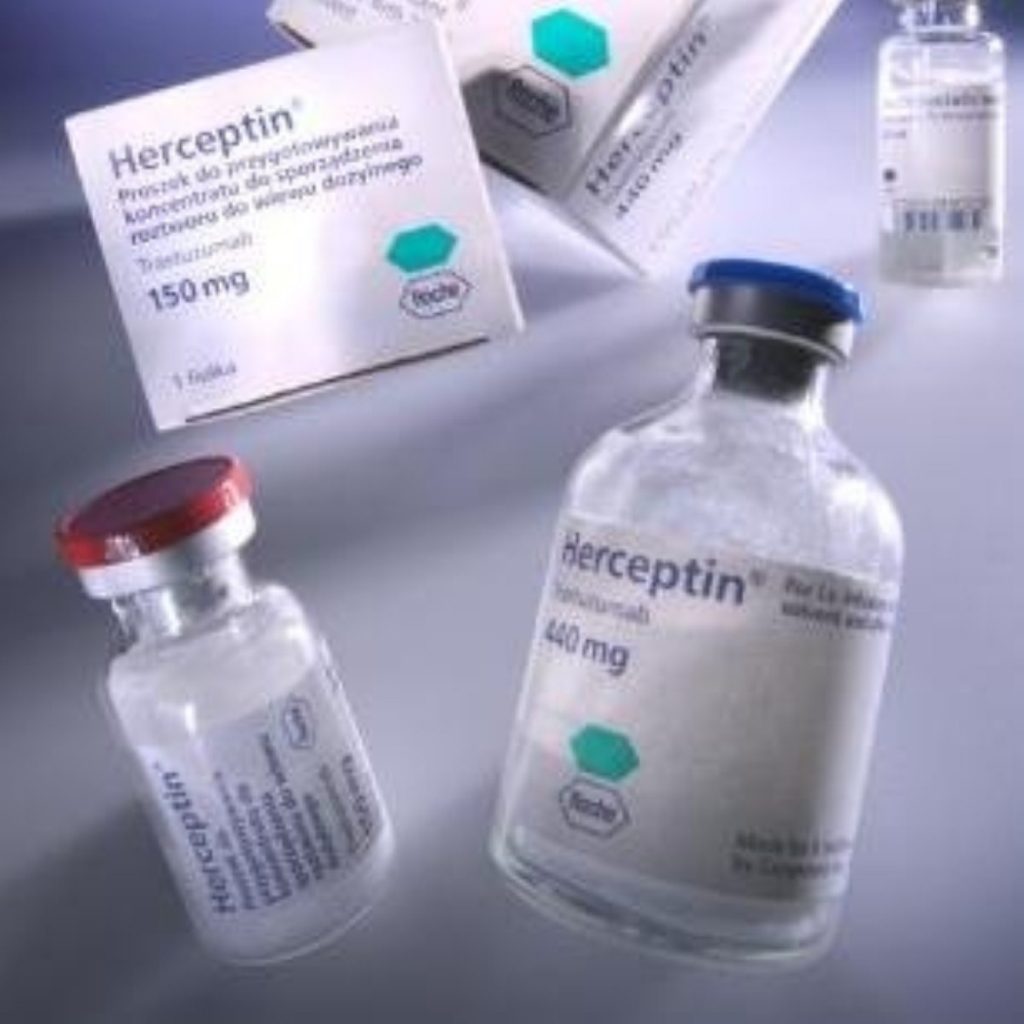Watchdog approves breast cancer drug
Thousands of women will have access to a life-saving new drug on the NHS after the health watchdog today approved Herceptin for use against early stage breast cancer.
The decision comes after a long-running battle between patients and primary care trusts (PCT) across the country, to tackle what was described as a “postcode lottery” in the prescription of the drug.
In April, 53-year-old Ann Marie Rogers won a challenge against Swindon PCT to force it to pay for her Herceptin treatment, after a court ruled it was “irrational” for the trust to deny her the drug after other PCTs had provided it elsewhere.
The trust had argued that the National Institute of Health and Clinical Excellence (Nice) had yet to recommend use of the drug in early breast cancer sufferers except in “exceptional circumstances”, but this was rejected by the court.


Health secretary Patricia Hewitt was last year accused causing much of the confusion when she told PCTs it was up to clinicians to decide, although cost could not be cited as an issue for refusing Herceptin – only to intervene in an individual case two weeks later.
She told North Stoke PCT that its refusal to pay for the drug – which costs £20,000 a year – because Nice had yet to conclude if it was safe or cost-effective, contradicted evidence from other trusts who had agreed to fund it.
Jeremy Hughes, chief executive of Breakthrough Breast Cancer, welcomed today’s decision as a way of putting an end to this confusion.
“Today’s announcement should ensure that all women for whom Herceptin is an appropriate treatment will receive it. A year of uncertainty and postcode lottery is at last coming to an end,” he said.
Nice chief executive Andrew Dillon said the proposals, which will be converted into final guidance in July subject to any appeals, were “very good news” – although the watchdog has recommended Herceptin not be used for women with a history of heart problems.
However, shadow health minister John Baron warned the government had yet to make sure that the necessary test to establish early stage breast cancer was available to women everywhere – as she promised in October.
“I therefore remain concerned that not all eligible women will be able to benefit from this decision,” he said.
Liberal Democrat health spokesman Steve Webb also expressed concern about how many PCTs struggling to balance their books would be able to pay for such an expensive drug as Herceptin.
“There are existing drugs, approved by Nice, not funded by some health trusts, and it is vital that Herceptin is not added to this list. It would be the unkindest cut of all to raise women’s hopes only to dash them yet again,” he said.

